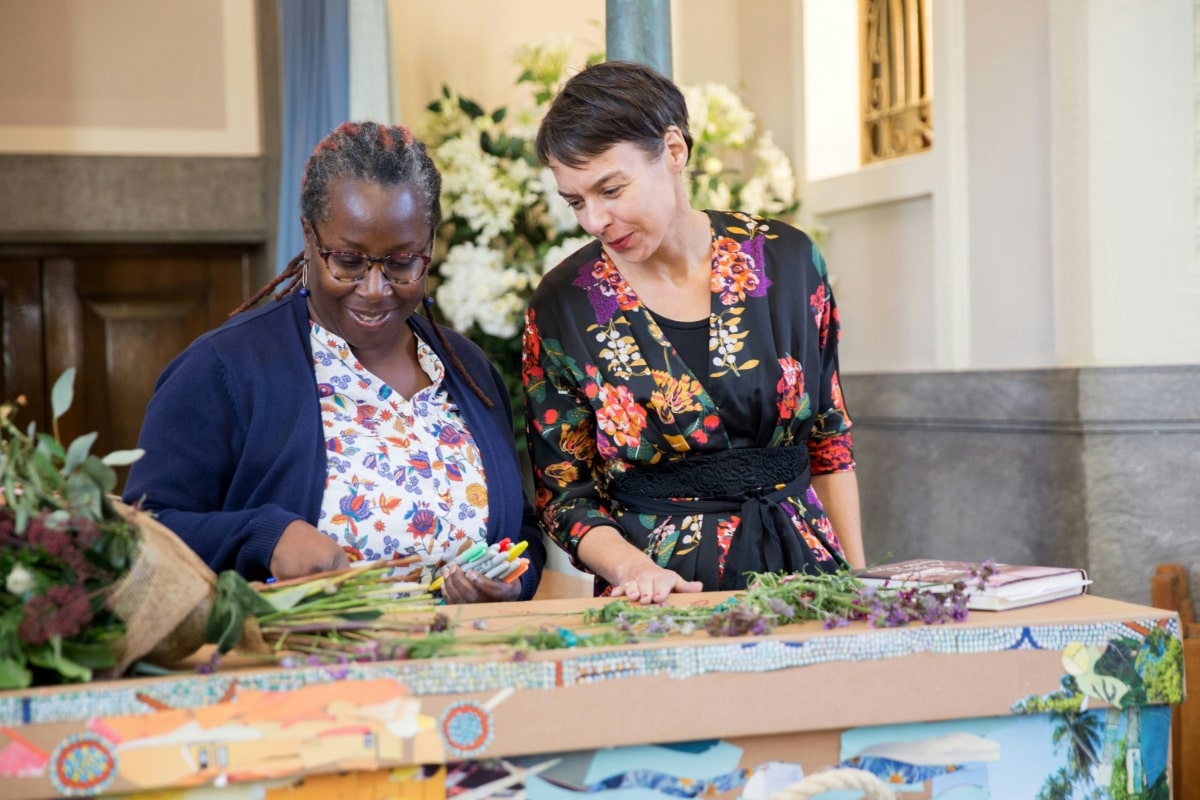
Writing a eulogy can feel like a huge responsibility, and summing up a person’s life in a few words may feel particularly challenging. If you’ve been tasked with writing the eulogy for a loved one’s funeral, there are a few simple techniques which can help to ensure you deliver something heartfelt on the day.
What is a eulogy?
A eulogy, also known as a tribute, is a remembrance speech that is read at a funeral service. It is compiled by someone who was very close to the deceased, and acts as a tribute to the person who has died. It is usually read by the person who wrote it or someone close to the deceased, but it may also be read by the funeral officiant. The purpose of a eulogy is to personalise the funeral, summarise a person’s life and what they meant to others. It will usually include meaningful stories and memories. It’s the part of the funeral service that honours the life lived and gives mourners something to remember a person by.
What makes a good eulogy?
A good eulogy doesn’t just highlight the big milestones in a person’s life, but it illuminates who they were as a person. It will discuss their achievements and key moments in their life, but also create a full-colour picture of their personality and the essence of who they were. This can be done through good storytelling and the sharing of memories. It’s not always the big memories that leave a lasting impression, sometimes the smallest memory can paint the perfect picture about who a person was.
How to structure a eulogy?
Whilst there is no one set way to structure a eulogy, including a beginning, middle and end may help you to write something that has purpose and takes listeners on a journey. Segmenting it in to three clear sections may also help you when it comes to writing it…
The beginning should set the tone – you could share your relationship to the deceased and discuss their main milestones and achievements in life.
The middle should be the heart and soul – share poignant memories about the deceased and discuss what they meant to you and others.
The end should act as a conclusion – summarise the life that was lived and the essence of who they were. What do you want people to remember them by?
If you would like to include a quote, reading or poem in the eulogy, it usually works best to include it at the very beginning or end as something to open or close with.
5 tips for writing a eulogy:
1. Write it down
However confident you are at public speaking, this isn’t the time to wing it. Plan out what you want to say in advance and practice reading it. This will ensure nothing important is missed, particularly if you are feeling emotional on the day. Many people also find writing things down to be a therapeutic practice that aids them in grief.
2. Ask others to contribute
There is no reason why a eulogy has to fall to one person, and many people reach out to friends and family for their input. You could ask them for their thoughts, reflections and memories of the deceased, or alternatively invite them to deliver part of the eulogy at the service. You may discover some wonderful new memories or insights about a person, and ease the burden of responsibility you feel.
3. Time it right
Just like with any speech, timing is key. If it’s too short you may not include enough colour about a person’s life, but too long and you run the risk of people becoming distracted or disengaged. As a general rule, between three and seven minutes works well, and definitely no more than ten minutes. Practice reading it out loud several times and be sure to time yourself.
4. Get someone to read it beforehand
Get a trusted family member or friend to read through the eulogy prior to the funeral service. Ask for feedback and get their honest thoughts. They should be able to tell you if anything is unclear, whether it sets the right tone, or whether you have missed anything important.
5. Be sensitive to others
Funerals are a time of heightened emotion and sensitivity, and not a time to take risks or cause controversy. Whilst honesty is important, a funeral is a time to celebrate a person’s life and act as a tribute to honour them by. Avoid discussing family disputes, difficult personality traits or triggering memories which could upset those attending the funeral. That being said, gentle humour is usually welcome. Don’t be afraid to include moments of humour if it feels appropriate.
Our team of funeral arrangers are here to provide advice and guidance to anyone planning a funeral. To speak to one of our team, call us on 01525 372210 or use our contact form to send us an email.



